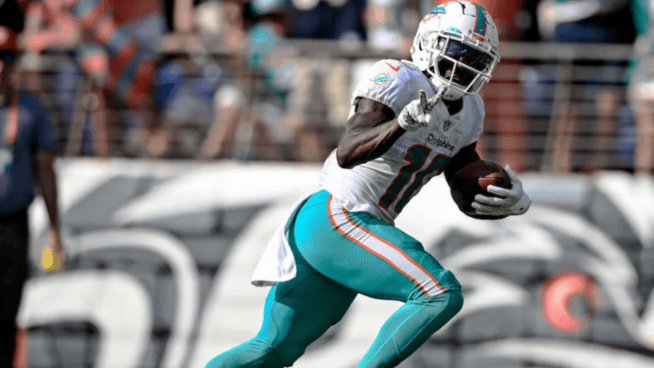![]()
Welcome to the STACK Eat Like a Champion article series, where we talk to nutrition experts about how to eat to beat the competition. You’ll learn how and what to eat to reach your goals and how to build quality dietary habits to turn yourself into a lean, mean eating machine. Check out our first installment on how to build muscle in the kitchen and our second installment on how to lose fat safely.
Believe it or not, muscle isn’t built in the weight room. It’s built beneath the covers of your bed while you rest and recharge—but not before you refuel in the kitchen. The third and final installment of our Eat Like a Champion series is all about post-workout nutrition, giving you the information you need to build yourself up bigger and stronger each day.
When it comes to post-workout nutrition, you have to consider two main things: the type of workout you did and how soon you can sit down for your next meal. With these factors in mind, you’ll be able to pick the right nutrients to help you recover.
Refuel Based on Your Workout
Post-workout nutrition needs are based largely on the type of workout you performed. After exercise, your body needs specific nutrients, but the amount of each depends on the type, duration and intensity of your workout.
Amy Jamieson-Petonic, a registered dietitian and nutrition consultant to the Cleveland Browns and Cleveland Cavaliers, emphasizes the importance of protein. She says, “Adequate protein is key. For most athletes, the daily recommendation is 1.2 to 1.7 grams per kilogram of body weight. Strength athletes might need a bit more.”
When muscles work hard during exercise, the body experiences increased protein breakdown, but eating protein afterwards triggers protein synthesis to build new muscle. Participants in intense weight training or contact sports such as football and wrestling may benefit from more protein.
But that doesn’t mean that other forms of exercise like endurance training don’t require lots of protein. In fact, long-duration endurance events like marathons require more protein for fuel than weight training (which uses mostly carbohydrates), so long-distance runners need lots of protein, too.
The Role of Carbohydrates
According to a 2012 review in the American Journal of Clinical Nutrition, 30 grams of protein in the form of a whey protein supplement can help athletes build muscle and recover from workouts. But protein isn’t the only nutrient you need. Carbohydrates are the main fuel for exercise, so they also need to be replaced after a tough workout.
Carbs are stored in the body as glycogen, which is used for fuel, especially during high-intensity exercise like sprinting and lifting weights. Eating carbs post-workout restocks those glycogen stores and helps you get ready for your next workout or competition.
It’s often said that consuming protein and carbs together enhances protein synthesis by triggering the release of insulin, a highly anabolic (i.e., muscle-building) hormone. However, according to a 2013 review in the Journal of the International Society of Sports Nutrition, there’s not much proof that eating protein and carbs builds more muscle than eating protein by itself. Regardless, since carbs help restore glycogen and protein helps build muscle, there’s no reason not to consume both after a workout.
The longer and harder you exercise, the more carbs you need after your workout. The more muscle you break down (through strength training, contact sports or long-duration endurance training), the more protein you need.
Is Time On Your Side?
Nutrient timing is a hot topic in the fitness industry. Many people have experimented with intermittent fasting and skipping meals to lose weight; but in the end, research shows time and again that what really matters is how much you eat over the course of an entire day. In other words, when you eat matters less than how much you eat.
Post-workout nutrition is pretty much the same. For years, it’s been thought that there’s an “anabolic window” of about 45 minutes to an hour after exercise when the body desperately needs protein and carbs, and if you don’t get them, your workout will be wasted. Fortunately, that’s not true.
Another 2013 review in the JISSN concluded there’s no solid evidence that you need to eat immediately after working out. In fact, the so-called “anabolic window” may be open for as long as 48 hours after exercise. However, it may take up to 24 hours to fully replenish glycogen stores, so the faster you put carbs back into your body, the sooner you’ll be ready to exercise again.
Ultimately, the most important factor is to consume adequate protein and carbs prior to your next workout or competition. Eating immediately after exercise gives you the best chance to recover in time, but your workout won’t be wasted if you don’t chug a protein shake within an hour.
Post-Workout Meal Options
The International Society of Sports Nutrition recommends a 3:1 ratio of carbs to protein after a workout. This means a post-workout meal containing 90 grams of carbs and 30 grams of protein is a great place to start. Here are a few meal options to get you that ideal ratio:
-
1 scoop whey protein and 2 large bananas
-
2 cups non-fat Greek yogurt, 1 cup oatmeal and 1 cup blueberries
-
4-ounce chicken breast (boneless, skinless) and 2 cups Jasmine rice
-
3 cups non-fat chocolate milk
RECOMMENDED FOR YOU
MOST POPULAR
![]()
Welcome to the STACK Eat Like a Champion article series, where we talk to nutrition experts about how to eat to beat the competition. You’ll learn how and what to eat to reach your goals and how to build quality dietary habits to turn yourself into a lean, mean eating machine. Check out our first installment on how to build muscle in the kitchen and our second installment on how to lose fat safely.
Believe it or not, muscle isn’t built in the weight room. It’s built beneath the covers of your bed while you rest and recharge—but not before you refuel in the kitchen. The third and final installment of our Eat Like a Champion series is all about post-workout nutrition, giving you the information you need to build yourself up bigger and stronger each day.
When it comes to post-workout nutrition, you have to consider two main things: the type of workout you did and how soon you can sit down for your next meal. With these factors in mind, you’ll be able to pick the right nutrients to help you recover.
Refuel Based on Your Workout
Post-workout nutrition needs are based largely on the type of workout you performed. After exercise, your body needs specific nutrients, but the amount of each depends on the type, duration and intensity of your workout.
Amy Jamieson-Petonic, a registered dietitian and nutrition consultant to the Cleveland Browns and Cleveland Cavaliers, emphasizes the importance of protein. She says, “Adequate protein is key. For most athletes, the daily recommendation is 1.2 to 1.7 grams per kilogram of body weight. Strength athletes might need a bit more.”
When muscles work hard during exercise, the body experiences increased protein breakdown, but eating protein afterwards triggers protein synthesis to build new muscle. Participants in intense weight training or contact sports such as football and wrestling may benefit from more protein.
But that doesn’t mean that other forms of exercise like endurance training don’t require lots of protein. In fact, long-duration endurance events like marathons require more protein for fuel than weight training (which uses mostly carbohydrates), so long-distance runners need lots of protein, too.
The Role of Carbohydrates
According to a 2012 review in the American Journal of Clinical Nutrition, 30 grams of protein in the form of a whey protein supplement can help athletes build muscle and recover from workouts. But protein isn’t the only nutrient you need. Carbohydrates are the main fuel for exercise, so they also need to be replaced after a tough workout.
Carbs are stored in the body as glycogen, which is used for fuel, especially during high-intensity exercise like sprinting and lifting weights. Eating carbs post-workout restocks those glycogen stores and helps you get ready for your next workout or competition.
It’s often said that consuming protein and carbs together enhances protein synthesis by triggering the release of insulin, a highly anabolic (i.e., muscle-building) hormone. However, according to a 2013 review in the Journal of the International Society of Sports Nutrition, there’s not much proof that eating protein and carbs builds more muscle than eating protein by itself. Regardless, since carbs help restore glycogen and protein helps build muscle, there’s no reason not to consume both after a workout.
The longer and harder you exercise, the more carbs you need after your workout. The more muscle you break down (through strength training, contact sports or long-duration endurance training), the more protein you need.
Is Time On Your Side?
Nutrient timing is a hot topic in the fitness industry. Many people have experimented with intermittent fasting and skipping meals to lose weight; but in the end, research shows time and again that what really matters is how much you eat over the course of an entire day. In other words, when you eat matters less than how much you eat.
Post-workout nutrition is pretty much the same. For years, it’s been thought that there’s an “anabolic window” of about 45 minutes to an hour after exercise when the body desperately needs protein and carbs, and if you don’t get them, your workout will be wasted. Fortunately, that’s not true.
Another 2013 review in the JISSN concluded there’s no solid evidence that you need to eat immediately after working out. In fact, the so-called “anabolic window” may be open for as long as 48 hours after exercise. However, it may take up to 24 hours to fully replenish glycogen stores, so the faster you put carbs back into your body, the sooner you’ll be ready to exercise again.
Ultimately, the most important factor is to consume adequate protein and carbs prior to your next workout or competition. Eating immediately after exercise gives you the best chance to recover in time, but your workout won’t be wasted if you don’t chug a protein shake within an hour.
Post-Workout Meal Options
The International Society of Sports Nutrition recommends a 3:1 ratio of carbs to protein after a workout. This means a post-workout meal containing 90 grams of carbs and 30 grams of protein is a great place to start. Here are a few meal options to get you that ideal ratio:
-
1 scoop whey protein and 2 large bananas
-
2 cups non-fat Greek yogurt, 1 cup oatmeal and 1 cup blueberries
-
4-ounce chicken breast (boneless, skinless) and 2 cups Jasmine rice
-
3 cups non-fat chocolate milk










